-
 Bitcoin
Bitcoin $115000
0.12% -
 Ethereum
Ethereum $3701
4.50% -
 XRP
XRP $3.081
2.99% -
 Tether USDt
Tether USDt $0.0000
-0.01% -
 BNB
BNB $767.9
1.45% -
 Solana
Solana $169.5
3.13% -
 USDC
USDC $0.9999
0.01% -
 Dogecoin
Dogecoin $0.2106
4.30% -
 TRON
TRON $0.3334
1.62% -
 Cardano
Cardano $0.7564
2.54% -
 Stellar
Stellar $0.4165
0.76% -
 Hyperliquid
Hyperliquid $38.75
0.25% -
 Sui
Sui $3.593
3.00% -
 Chainlink
Chainlink $17.08
3.59% -
 Bitcoin Cash
Bitcoin Cash $573.6
4.35% -
 Hedera
Hedera $0.2508
-0.84% -
 Avalanche
Avalanche $23.07
6.46% -
 Ethena USDe
Ethena USDe $1.001
-0.02% -
 Litecoin
Litecoin $120.8
8.17% -
 UNUS SED LEO
UNUS SED LEO $8.943
-0.32% -
 Toncoin
Toncoin $3.400
-5.60% -
 Shiba Inu
Shiba Inu $0.00001255
1.54% -
 Uniswap
Uniswap $9.908
6.32% -
 Polkadot
Polkadot $3.718
2.10% -
 Monero
Monero $303.0
-0.74% -
 Dai
Dai $0.9999
-0.02% -
 Bitget Token
Bitget Token $4.392
0.91% -
 Cronos
Cronos $0.1403
6.31% -
 Pepe
Pepe $0.00001076
1.13% -
 Aave
Aave $267.2
1.80%
What is a time lock in a smart contract?
Time locks in smart contracts delay transaction execution, enhancing security by preventing immediate changes and allowing review before actions take effect.
Jul 13, 2025 at 01:14 pm
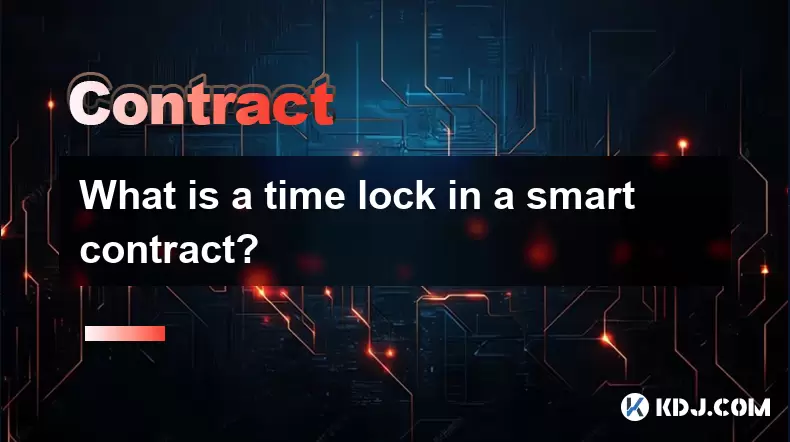
Understanding the Concept of Time Lock in Smart Contracts
A time lock in a smart contract refers to a mechanism that restricts certain functions or transactions from being executed until a specified time or block height has been reached. This feature is commonly used in blockchain development to ensure that specific conditions are met before allowing access to funds, data, or other functionalities within a decentralized application (dApp) or protocol.
The use of time locks allows developers to introduce delays or scheduled execution for critical operations, such as token transfers, governance decisions, or upgrades to a protocol. This can help prevent premature actions and provide a layer of security by ensuring that certain changes cannot be made immediately.
Time locks are especially useful in scenarios where delayed execution is necessary for compliance, security audits, or phased releases.
How Time Locks Work in Blockchain Protocols
In most blockchain systems, smart contracts are immutable once deployed. However, some protocols implement a governance model that allows for future upgrades or modifications. To maintain decentralization and transparency, these upgrades often require approval from token holders through voting mechanisms.
Even after a successful vote, the change should not take effect immediately. Here's where time locks come into play. Once a proposal passes, it is submitted to the time lock contract, which enforces a waiting period before the action can be executed. During this time, any participant can review the proposed change and raise concerns if something seems malicious or unintended.
For example, a time lock might enforce a 48-hour delay between when a proposal is approved and when it becomes active. This gives users an opportunity to exit the system if they disagree with the change or suspect foul play.
- Time lock contracts typically accept parameters like target address, value, function signature, and delay duration.
- Once queued, the transaction can only be executed after the specified time has passed.
- Some implementations allow for cancellation of queued transactions under certain conditions.
Implementing Time Locks in Solidity Smart Contracts
Developers can implement time locks using programming languages like Solidity for Ethereum-based contracts. The core idea involves storing pending actions in a mapping and verifying timestamps or block numbers before execution.
Here’s a simplified example of how you might define a time lock in Solidity:
struct QueuedAction {address target;
uint256 value;
string signature;
bytes data;
uint256 eta;
}
mapping(bytes32 => bool) public queuedTransactions;
function queueTransaction(
address target,
uint256 value,
string memory signature,
bytes memory data,
uint256 delay
) public returns (bytes32) {
uint256 eta = block.timestamp + delay;
bytes32 txHash = keccak256(abi.encode(target, value, signature, data, eta));
queuedTransactions[txHash] = true;
return txHash;
}
function executeTransaction(
address target,
uint256 value,
string memory signature,
bytes memory data,
uint256 eta
) public payable {
require(block.timestamp >= eta, "TimeLock: not yet");
bytes32 txHash = keccak256(abi.encode(target, value, signature, data, eta));
require(queuedTransactions[txHash], "TimeLock: unqueued");
// Execute call logic here
}
This code demonstrates how to queue and later execute a transaction after a defined time has elapsed. Developers must also consider gas limits, reentrancy risks, and proper access control when deploying such contracts on mainnet.
Different Types of Time Locks Used in Practice
There are several variations of time locks depending on their intended use cases:
- Timelock Governor: Used in governance systems to delay the execution of proposals.
- Vault Unlocking: Tokens may be locked for a certain period before becoming transferable.
- Escrow Services: Funds held in escrow are released only after a set time or condition is met.
- Scheduled Token Releases: Common in ICOs or token vesting schedules where tokens are distributed over time.
Each type serves a unique purpose but shares the same fundamental principle—delayed execution based on time.
These variations are often implemented using modular libraries or existing frameworks like OpenZeppelin’s TimelockController.
Security Considerations When Using Time Locks
While time locks add a layer of safety, they are not immune to vulnerabilities. One major concern is the potential for front-running attacks, where an attacker observes a pending transaction and executes a similar one ahead of it for profit.
Another issue arises when the time lock contract itself is upgradable or controlled by a single entity. If the owner of the time lock contract has unchecked power, they could manipulate queued transactions or bypass delays altogether.
To mitigate these risks:
- Ensure that the time lock contract is non-upgradeable unless carefully governed.
- Use event logging to publicly announce queued transactions for transparency.
- Implement cancellation functionality with multi-sig or governance oversight.
Frequently Asked Questions
Q1: Can a time lock be bypassed in an emergency?
Some time lock implementations include an emergency override mechanism, usually requiring multi-signature approval or a governance vote to cancel a pending transaction.
Q2: Are time locks mandatory in all DeFi protocols?
No, time locks are optional and typically used in projects that prioritize governance and security. Many smaller or experimental protocols may skip them for simplicity.
Q3: How does a time lock interact with multisig wallets?
Time locks can work alongside multisig wallets to enforce both time delays and multiple approvals before executing sensitive actions.
Q4: What happens if a transaction is never executed after being queued?
Queued transactions usually remain valid indefinitely unless explicitly canceled. However, some systems may impose expiration periods beyond which the transaction becomes invalid.
Disclaimer:info@kdj.com
The information provided is not trading advice. kdj.com does not assume any responsibility for any investments made based on the information provided in this article. Cryptocurrencies are highly volatile and it is highly recommended that you invest with caution after thorough research!
If you believe that the content used on this website infringes your copyright, please contact us immediately (info@kdj.com) and we will delete it promptly.
- Velo Universe, DEX, and DeFi Security: Navigating the Future of Decentralized Trading
- 2025-08-05 09:25:13
- Bitget Wallet Revolutionizes Solana with Gas-Free Transactions: A New Era for DeFi
- 2025-08-05 09:25:13
- Ozak AI, Crypto Boom, and ROI Potential: Is This the Next Big Thing?
- 2025-08-05 09:25:24
- Solana's ETF Hopes & the All-Time High Chase: Is SOL Set to Soar?
- 2025-08-05 09:25:24
- Coinbase's Brian Armstrong and the Art of Focused Work: A Deep Dive
- 2025-08-05 09:25:30
- Uniswap Price Prediction: Bullish Reversal on the Horizon?
- 2025-08-05 09:25:30
Related knowledge
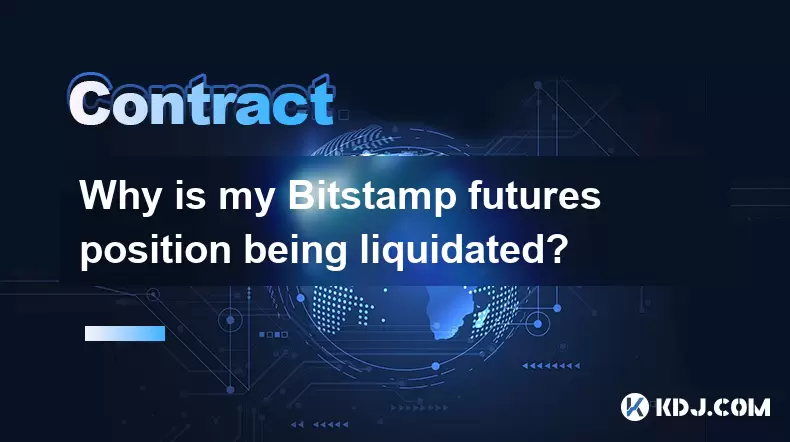
Why is my Bitstamp futures position being liquidated?
Jul 23,2025 at 11:08am
Understanding Futures Liquidation on BitstampFutures trading on Bitstamp involves borrowing funds to open leveraged positions, which amplifies both po...
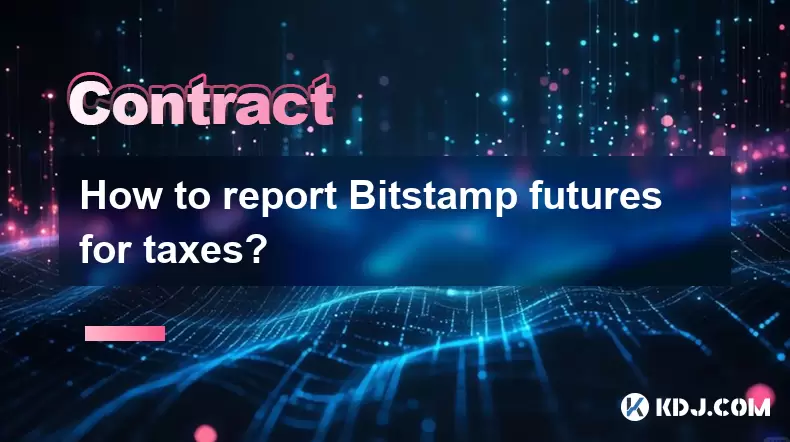
How to report Bitstamp futures for taxes?
Jul 30,2025 at 08:35am
Understanding Bitstamp Futures and Taxable EventsWhen trading Bitstamp futures, it’s essential to recognize that these financial instruments are treat...
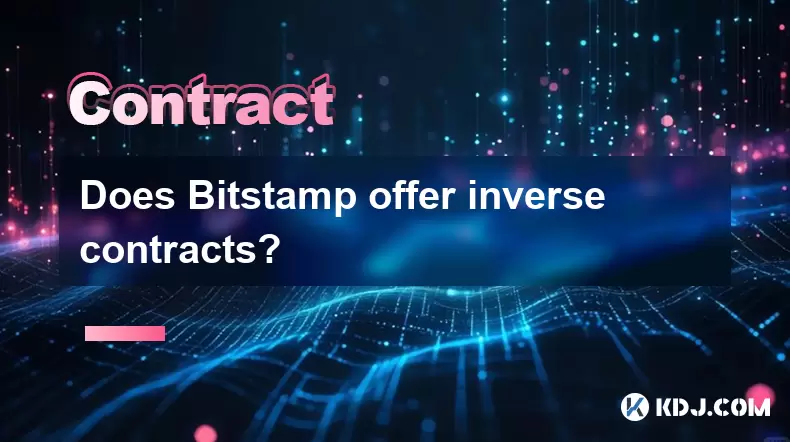
Does Bitstamp offer inverse contracts?
Jul 23,2025 at 01:28pm
Understanding Inverse Contracts in Cryptocurrency TradingIn the realm of cryptocurrency derivatives, inverse contracts are a specific type of futures ...
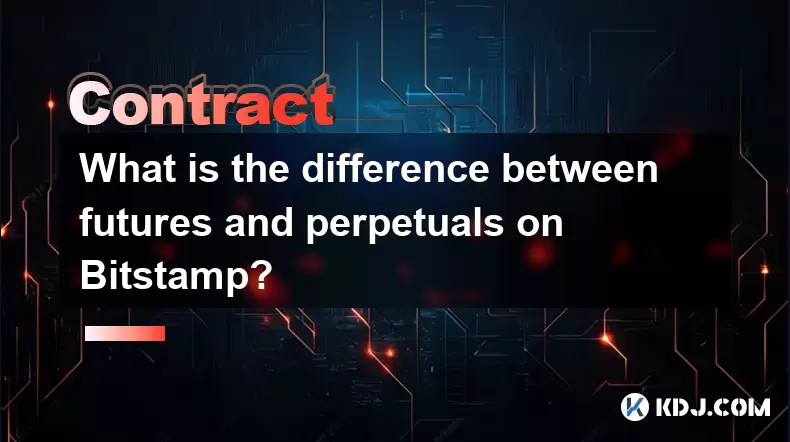
What is the difference between futures and perpetuals on Bitstamp?
Jul 27,2025 at 05:08am
Understanding Futures Contracts on BitstampFutures contracts on Bitstamp are financial derivatives that allow traders to speculate on the future price...
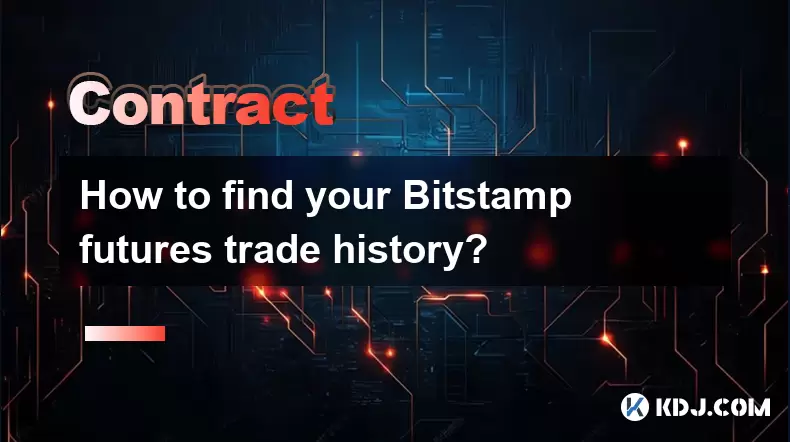
How to find your Bitstamp futures trade history?
Jul 23,2025 at 08:07am
Understanding Bitstamp and Futures Trading AvailabilityAs of the current state of Bitstamp’s service offerings, it is critical to clarify that Bitstam...
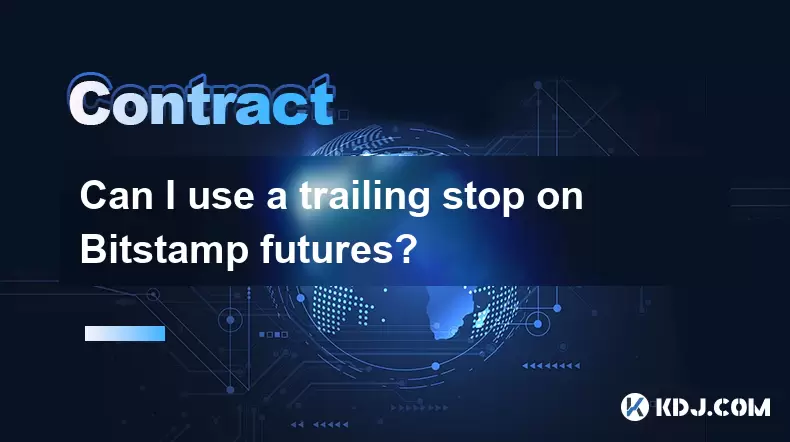
Can I use a trailing stop on Bitstamp futures?
Jul 23,2025 at 01:42pm
Understanding Trailing Stops in Cryptocurrency TradingA trailing stop is a dynamic type of stop-loss order that adjusts automatically as the price of ...

Why is my Bitstamp futures position being liquidated?
Jul 23,2025 at 11:08am
Understanding Futures Liquidation on BitstampFutures trading on Bitstamp involves borrowing funds to open leveraged positions, which amplifies both po...

How to report Bitstamp futures for taxes?
Jul 30,2025 at 08:35am
Understanding Bitstamp Futures and Taxable EventsWhen trading Bitstamp futures, it’s essential to recognize that these financial instruments are treat...

Does Bitstamp offer inverse contracts?
Jul 23,2025 at 01:28pm
Understanding Inverse Contracts in Cryptocurrency TradingIn the realm of cryptocurrency derivatives, inverse contracts are a specific type of futures ...

What is the difference between futures and perpetuals on Bitstamp?
Jul 27,2025 at 05:08am
Understanding Futures Contracts on BitstampFutures contracts on Bitstamp are financial derivatives that allow traders to speculate on the future price...

How to find your Bitstamp futures trade history?
Jul 23,2025 at 08:07am
Understanding Bitstamp and Futures Trading AvailabilityAs of the current state of Bitstamp’s service offerings, it is critical to clarify that Bitstam...

Can I use a trailing stop on Bitstamp futures?
Jul 23,2025 at 01:42pm
Understanding Trailing Stops in Cryptocurrency TradingA trailing stop is a dynamic type of stop-loss order that adjusts automatically as the price of ...
See all articles

























































































